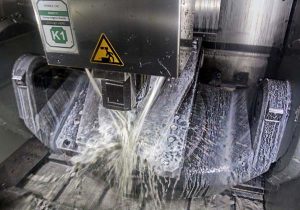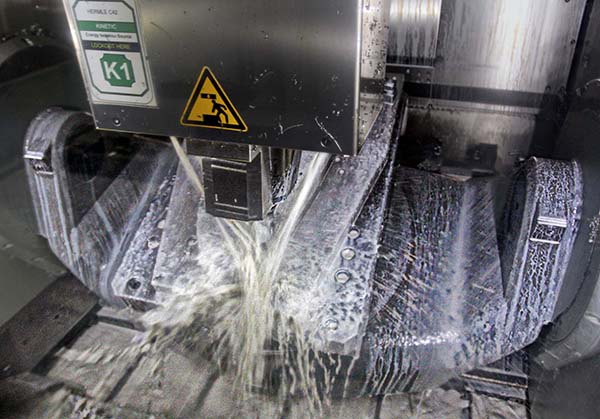A tier-one aerospace supplier in the UK has been awarded the contract to produce the pylon box assembly that attaches the engine to each wing of an Airbus A319, A320 and A321 neo (new engine option) single-aisle jetliner.

After extensively researching the market, the subcontractor installed a new, dedicated machining and assembly cell at one of its production facilities. The process is now fully developed for manufacturing the left- and right-hand pylons at a rate destined to rise to 50 pairs per month by 2019 to meet current aircraft production rates.
The cell includes a German-built Hermle C42UP twin-pallet, vertical-spindle, five-axis machining centre for finish-milling a titanium rib that forms part of the pylon’s construction. A pair of three-axis vertical machining centres for initially roughing material from the titanium billets, along with a large pylon assembly area, complete the equipment devoted to this project.
Choice of the five-axis machining centre was key, as it was a significant tranche of the investment. The Hermle option was selected based on suitability for purpose, value for money and an established, successful association with the UK sales and service agent, Geo Kingsbury.
Other factors in favour of the supplier’s equipment were the Heidenhain control, the high-torque spindle necessary for machining titanium 24-7 and Hermle’s database of machining knowledge at its production plant in Gosheim, which included information directly relevant to the application.
While all other ribs in an Airbus neo jetliner are made from aluminium, the pylon rib must be machined from titanium to withstand the higher temperatures generated by the new engine – either Pratt & Whitney’s PW1000G or the LEAP-1A from CFM International.
For further information www.geokingsbury.com















